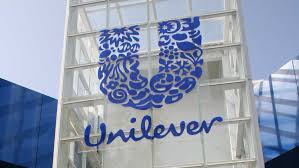Unilever Ghana Limited recorded a revenue growth of GH¢632 million in 2018, representing a 10 per cent increase of GH¢575 million in 2017.
The growth was due to increase in volumes of products sold.
The Company’s operating profit before tax for 2018 rose to GH¢250 million, compared to GH¢65 million recorded in 2017, while profit after tax improved GH¢191 million in 2018 to GH¢48 million in 2017.
In line with the performance, the board of the company recommended to pay a dividend of GH¢0.80 per share from the 2018 profits, amounting to a total of GH¢50,000,000, which shareholders approved.
Mr Edward Effah, the Board Chairman of Unilever Ghana Limited, announced this on Friday at the company’s Annual General Meeting in Accra.
Touching on the country’s economic performance, the Board Chairman said the economy accelerated to 8.5 per cent in 2017, making it the second-fastest growing African economy, trailing only Ethiopia.
He said growth for the first quarter of 2018 was 6.8 per cent, above 6.7 per cent recorded in 2017, which was driven by the continued expansion of oil production.
The country’s overall Gross Domestic Product (GDP) growth for 2018 is estimated at 5.6 per cent, however, in September 2018, Ghana rebased its GDP from 2006 to 2013.
Private consumption increased by 6.2 per cent of GDP in 2018, and the economy is projected to grow by 7.3 per cent in 2019 and a slower 5.4 per cent in 2020, as the effects of increased oil production from new wells fade.
Mr Effah said the cedi stabilized against major currencies, except for a slight depreciation against the dollar in the second quarter of 2018.
The cedi depreciated by 8.4 per cent in 2018 to the dollar compared with 4.9 per cent in 2017 and against the euro, it recorded a depreciation of 3.9 per cent in 2018 as against 16.2 per cent in 2017.
Mr Effah said the country was gradually building industrial capacity and the growth in industry was projected at 9.8 per cent in 2019 and 5.9 per cent in 2020.
Between 2000 and 2017, the total value of machinery imports increased fourfold to $670 million, which had a substantial adverse effect on the country’s current account balance, but reflects a gradual shift toward industrialisation.
Mrs Gladys Amoah, the Managing Director, Unilever Ghana Limited said the company would continue to prioritise its investment in building efficient process equipment as a means of meeting customers demand to achieve growth.
“The company has invested more than GHC 39 million in infrastructure plants such as biomass boiler, an oral offshore project, treatment plant, among others to deliver quality and efficient service to customers”, she added.
Focusing on corporate governance, the Managing Director said the company had put in place sound operational control systems to safeguard the interests of shareholders and stakeholders by adopting standard accounting practices to facilitate transparency in the disclosure of information.
“The company had a robust internal control system, which is well documented and regularly reviewed. The system incorporates internal control procedures designed to provide reasonable assurance that assets are safeguard”.
On the outlook for 2019, Mrs Amoah said the company would continue to build on the strong financial performance achieved and increase the operational intensity with customer focus for sustained growth.
Some of the stakeholders commended the company for the achievements and urged management to continue to institute effective governance management measures to ensure sound fiscal performance.
Business News of Saturday, 25 May 2019
Source: ghananewsagency.org

















